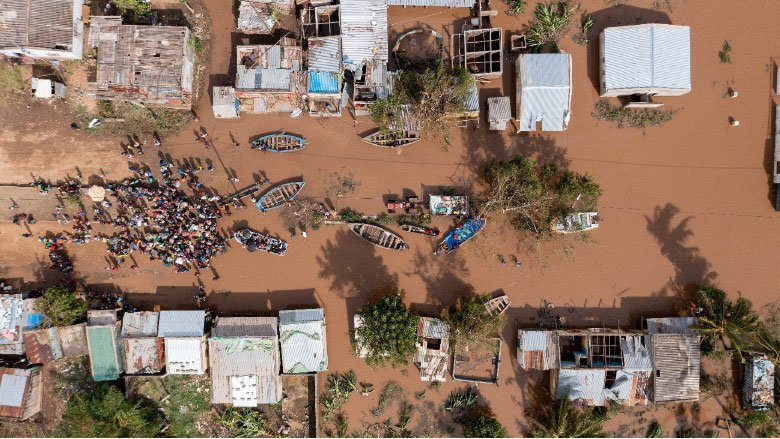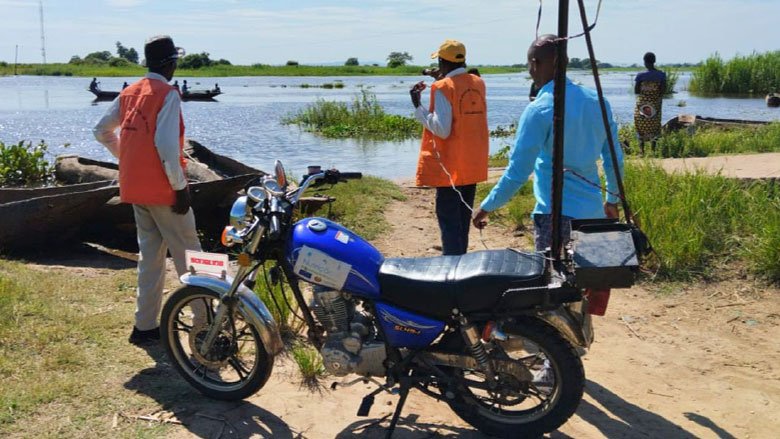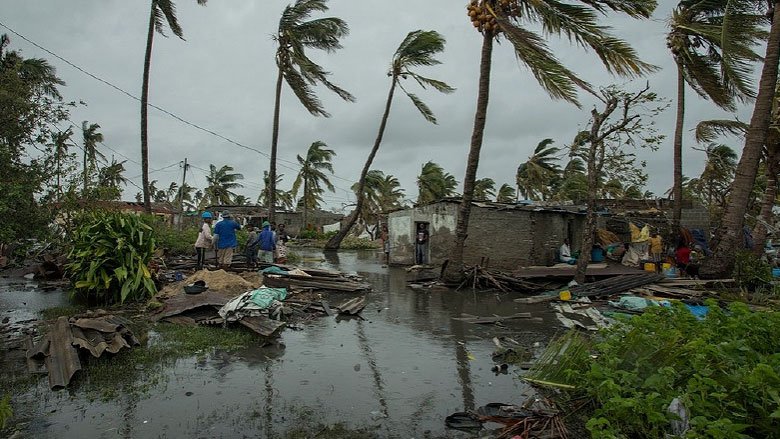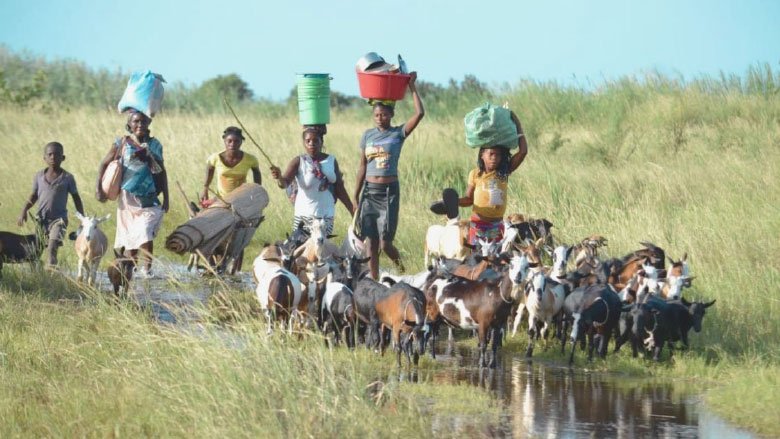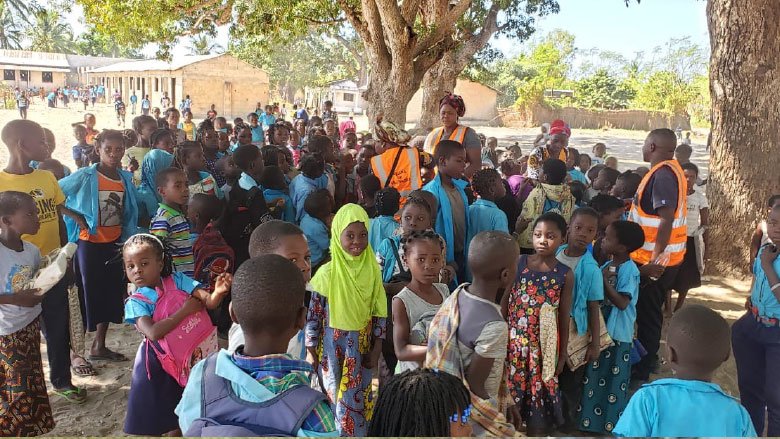MAPUTO, September 11, 2023 - Early warning systems can save lives. Avelino Binda, a fisherman from Inhambane Province in southern Mozambique, knows this well.
It was an ordinary day. Avelino was preparing to set sail with his team when a brigade from the National Institute for Disaster Management (INGD) arrived to alert him about the fast-approaching storm. He had no idea the storm was coming, nor did hundreds of others in his village. The brigade had been trained to warn communities about impending natural hazards as part of the country’s new early warnings system.
“It was just in time to pack our equipment and head home to our families,” Avelino recalls. “We quickly collected essential belongings and animals and took shelter at the primary school on top of the hill.”
Many other communities around the country received a similar warning through mobile brigades, radio, and megaphone announcements, days before Cyclone Freddy hit Mozambique in February 2023. No one yet knew this would soon become the longest-lived cyclone in recorded history, nor that it would hit Mozambique twice over the course of five weeks. The memory of the devastation left by Cyclone Idai in 2019 was still fresh in people’s minds. Cyclone Idai wreaked havoc, killing over 600 people, displacing thousands, and prompting a humanitarian crisis. It destroyed schools, roads, bridges, energy assets, and water treatment facilities, with massive repercussions on the wider economy.
This time, the country was much better prepared.
Extreme weather events do not have to become disasters
Mozambique’s new early warning system enables authorities to track potential hazards well in advance, take early action, and minimize the impact on people and property. The system combines new technology, infrastructure, and community action to alert communities located in disaster-prone areas.
First, the National Meteorology Institute (INAM) produces a meteorological warning based on satellite imagery, radar, and observation network data. Then, the Institute of Social Communication (ICS) disseminates these alerts through its network of 70 community radios and trained community brigades that warn at-risk communities, leading them to safety before an extreme weather occurrence.
The National Institute for Disaster Management and Risk Reduction (INGD) coordinates this exercise with support from the World Bank’s Disaster Risk Management and Resilience Program. The program promotes the creation and strengthening of local disaster risk management committees in all at-risk communities in the country.
Community-based early warning systems
Local committees are trained and equipped to improve disaster preparedness and response and coordinate with the various operational platforms for the dissemination of early warning messages. These include SMS mass warnings issued through Datawinners (a digital platform that shortens time between data collection and decision-making), community and provincial radios, as well as the ICS brigades that conduct door-to-door communication campaigns.
“The relatively low number of fatalities [caused by Cyclone Freddy] reflects the success of this approach,” says Andrigo Sabonete, an ICS mobilization officer from Chinde District, in Central Zambezia Province, one of the cyclone's entry points. “Cyclone Freddy was intense and destroyed much infrastructure but did not take many lives. The alert system worked.”
The community mobilization work starts long before INAM issues a meteorological warning. Throughout the year and leading up to cyclone season, ICS educates communities on what they can do before, during, and after extreme weather events like storms, cyclones, or floods. They do so through community debates, distributing educational information, slogan caravans, SMS, meteorological and hydrological bulletins, and messaging on flood risks on the country’s primary river basins.
Communities country-wide feel the positive impact of this new, locally-centered early warning system.
“With Cyclone Freddy, we knew what would happen and felt more in control. We were able to prepare and ensure our families were safe,” said Regina Mutoro, a member of the local disaster committee in Chinde District.
Mozambique is one of the world's most vulnerable countries to climate-related hazards. But extreme weather events do not have to become disasters. A robust early warning system is critical to building resilience among communities and authorities to ensure that when the next weather hazard strikes, they are ready to receive and correctly interpret the warning messages and take immediate action to minimize its impact. The World Bank will continue to support the Government of Mozambique to strengthen its early warning system and the capacity of local communities to respond to future climate shocks.
